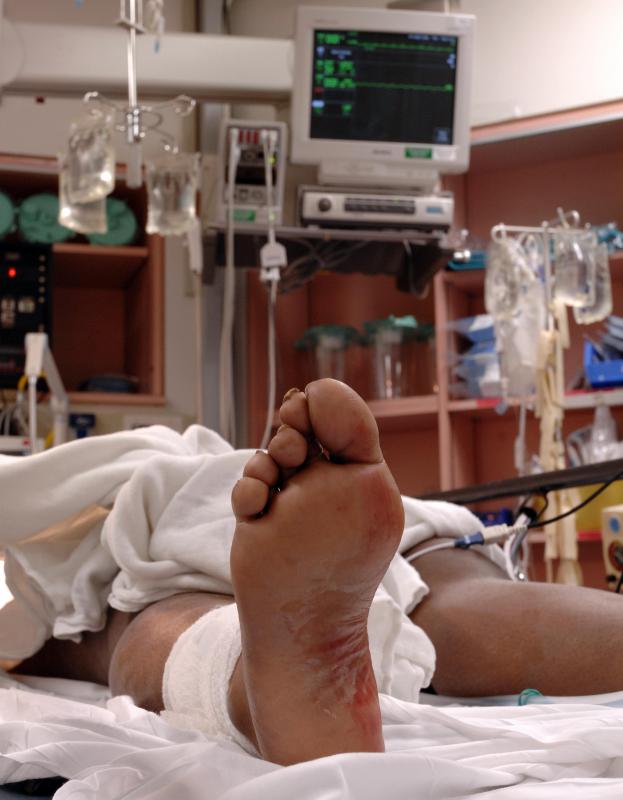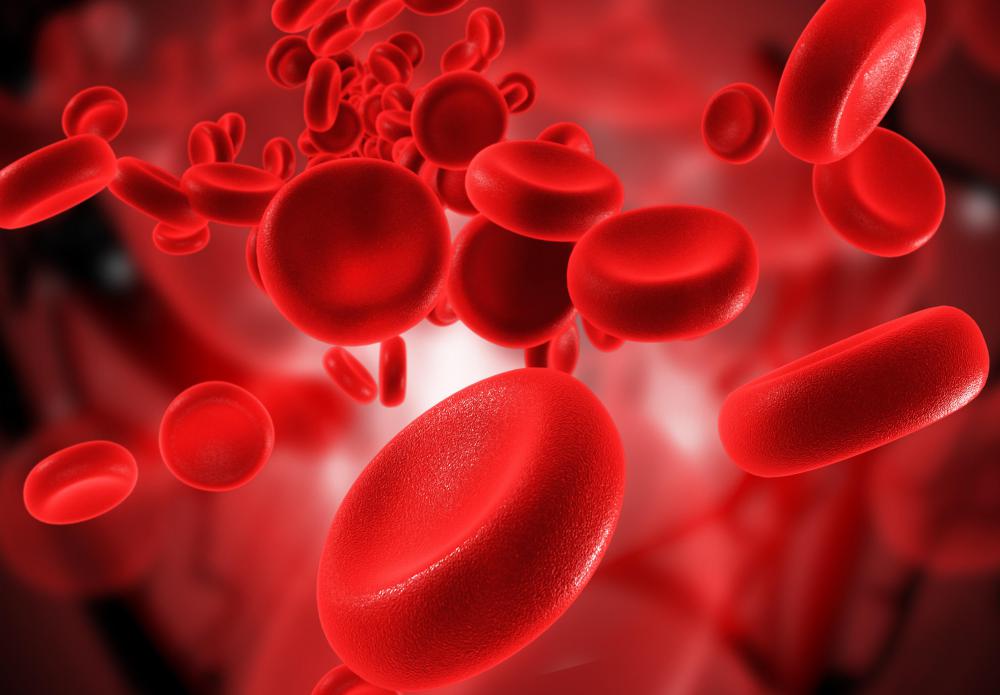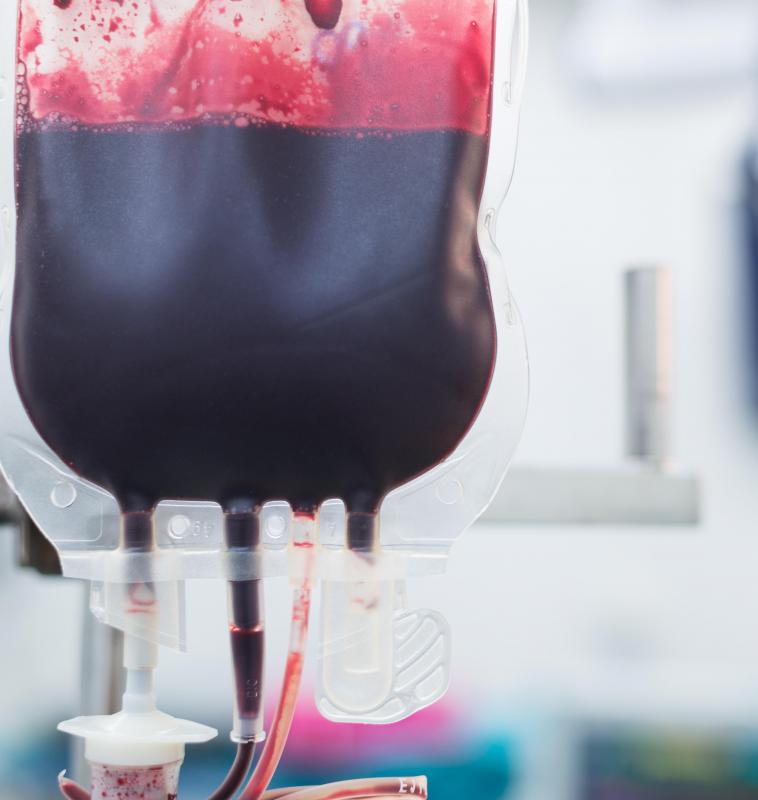At WiseGEEK, we're committed to delivering accurate, trustworthy information. Our expert-authored content is rigorously fact-checked and sourced from credible authorities. Discover how we uphold the highest standards in providing you with reliable knowledge.
What is Artificial Blood?
Artificial blood is a basic filler for the human cardiovascular system used in some medical procedures or to treat certain conditions. It is also known as blood surrogate or blood substitute, and although it does not act as a full substitute for blood, it does help to take up space and carry some important gases. There are two main categories of artificial blood: oxygen therapeutics, for blood that carries oxygen, and volume expanders for inert blood.
When severe trauma occurs, a serious danger is that blood volume will be reduced to a point where the remaining red blood cells can no longer oxygenate body tissue, which can result in tissue damage or death. Faux blood solves this by acting as a volume expander, making up for the lost quantity of blood. Because real blood has a substantial capacity for carrying oxygen, so long as volume is retained, even a dilute ratio of real blood to artificial blood can be adequate to keep a person alive. Even at half the normal level of real blood, with artificial blood a person’s oxygen levels can be at around three-quarters of the norm. At the outside limit, a person using volume expanders can get down to as little as one-seventh of their normal red blood count and still remain stable.

The problem of creating a blood substitute that can carry oxygen efficiently has been a difficult one, and there are currently two main methods for getting artificial blood to do this. The first uses perfluorocarbons to carry oxygen and release it. Perfluorocarbons are mixed with a number of other things, including salts, nutrients, antibiotics, and vitamins, to create a composite as close to real blood as possible. Perfluorocarbons may in fact have some benefits over real red blood cells, in the form of their small size, which allows them to travel through capillaries shut off to red blood cells, helping to oxygenate tissues otherwise cut off. Perfluorocarbon-based faux bloods include Fluosol-DA-20, PHER-O, PERFTEC, and Oxycyte.

The other method uses hemoglobin derived from animals, humans, or created with recombinant DNA technologies. Hemoglobin, although a natural component of red blood cells, can cause renal toxicity when used in a pure form, so must be treated in a number of ways, including encapsulating it. There are a number of different hemoglobin-based artificial bloods under development, including Hemospan, Oxyglobin, Hemopure, and PolyHeme. Hemoglobin-based products are the type most pursued by the US military for use in the field, and so a great deal of investment and research is being directed to this area right now.
AS FEATURED ON:
AS FEATURED ON:













Discussion Comments
If you have enough blood for a human, would you be able to replace all the blood for the person affected with HIV/AIDs?
@arod2b42: Of course, it will be able to create a more advanced artificial replacement for our body parts. The technology we can create is not yet limited and it is highly probable that we can create something like that.
I think that artificial blood is a good thing! It will help everyone. I love artificial blood!
@FitzMaurice
I find it unlikely that we will be able to surpass our infinitesimally detailed and well-working natural bodily system in the near future. Advances have been made, and are continuing to be made, in temporary supplements, however, and it is likely that these will continue to improve.
If it is possible to create surrogate fluids and organs for humans, perhaps one day we will be able to make replacements which will perform just as good, if not better, than our natural body members. Could it be that we will one day all live as cyborgs?
Post your comments